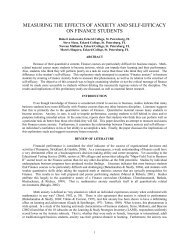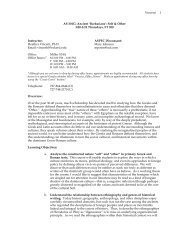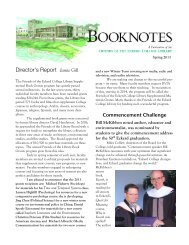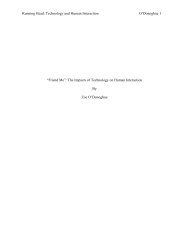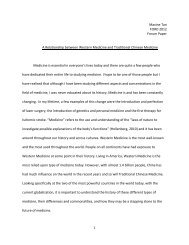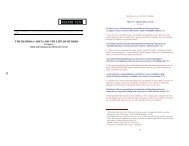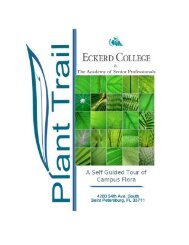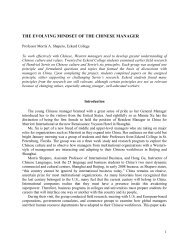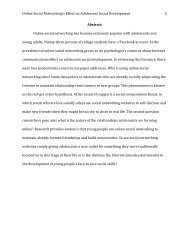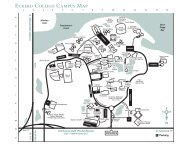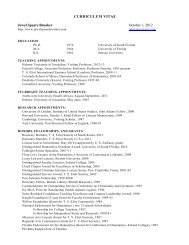Scientific and Lay Knowledge 1 Scientific and Lay Knowledge: The ...
Scientific and Lay Knowledge 1 Scientific and Lay Knowledge: The ...
Scientific and Lay Knowledge 1 Scientific and Lay Knowledge: The ...
Create successful ePaper yourself
Turn your PDF publications into a flip-book with our unique Google optimized e-Paper software.
<strong>Scientific</strong> <strong>and</strong> <strong>Lay</strong> <strong>Knowledge</strong> 3<br />
<strong>Scientific</strong> <strong>and</strong> <strong>Lay</strong> <strong>Knowledge</strong>: <strong>The</strong> Need for Communication <strong>and</strong> Integration<br />
Our modern world is defined by science <strong>and</strong> technology. Behind every household<br />
appliance, every pill in our medicine cabinet, every modified gene in our food, <strong>and</strong> even the<br />
management of our waste, there is a scientist working under scrutinized conditions to improve<br />
society. And yet, society was not always like this. In fact, there still remain some people who<br />
live in communities in which the scientific method is not applied to everyday life—<strong>and</strong> some<br />
argue cannot be (Harry, 2011). Even within our own fast-paced, technocratic culture lay<br />
knowledge is prevalent <strong>and</strong> pertinent. This is because scientific knowledge, the information<br />
acquired through systematic experimentation or pseudo-experimentation <strong>and</strong> analysis that is<br />
peer-reviewed by other trained scientists, does not give a complete picture of our earth. Non-<br />
scientific knowledge, everyday knowledge acquired by all people outside of the methodology of<br />
science, also contributes to our underst<strong>and</strong>ing of the world around us.<br />
<strong>Scientific</strong> knowledge aids in the globalization process by giving people an ability to<br />
participate in the world economy. Of the five reasons to promote school science education listed<br />
by the National Research Council, the dependence of economic competitiveness on scientific<br />
capacity was one (Liu, 2008, p. 304). According to health researcher Peter Harvey (2009),<br />
scientific knowledge is significant because it is open, verifiable <strong>and</strong> refutable through a<br />
methodology that requires review (Harvey, 2009, p.629). Science is an evolving process, <strong>and</strong><br />
contrary to common belief, scientific knowledge is created to be changed.<br />
Non-scientific lay knowledge is important because it is oftentimes well-adapted to local<br />
conditions <strong>and</strong> people. Teresa Johnson (2010) found through her fisheries management study<br />
that fishermen had a substantial amount of knowledge about the local fisheries that scientists did<br />
not possess, including information about sea depth <strong>and</strong> ecosystem interactions (Johnson, 2010).



